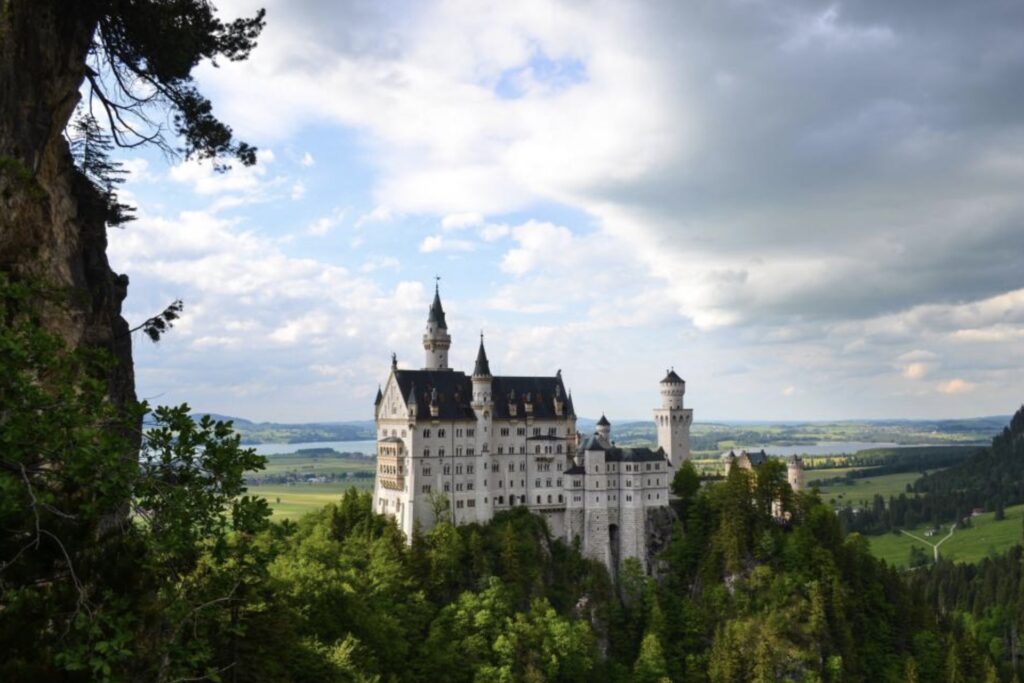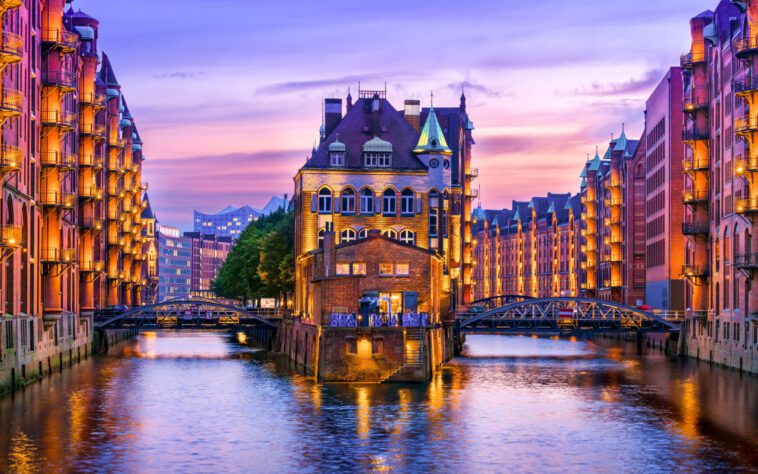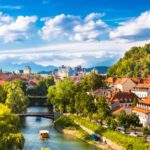Germany is a land of fairy tale castles, vibrant cities, and breathtaking landscapes that captivate travelers worldwide. From the Bavarian Alps to the Baltic Sea, this diverse country offers countless treasures waiting to be discovered. If you’re planning a trip to Germany, you’ll want to make the most of your visit by exploring its most spectacular destinations. In this comprehensive guide to the 10 Best Places to Visit in Germany, we’ll take you through unmissable attractions, hidden gems, and practical travel tips to help you create unforgettable memories.

1. Munich: Bavaria’s Cultural Heartbeat
Munich, the capital of Bavaria, perfectly blends traditional German culture with cosmopolitan flair. This enchanting city offers visitors a taste of authentic German lifestyle amid stunning architecture and lush green spaces.
Must-See Attractions:
- Marienplatz – The bustling central square featuring the New Town Hall with its famous Glockenspiel
- English Garden – One of the world’s largest urban parks, complete with beer gardens and a surfing spot on the Eisbach river
- BMW Museum – Automobile enthusiasts will love exploring the history of this iconic German brand
- Nymphenburg Palace – A magnificent baroque palace with expansive gardens
Things to Do in Munich:
- Join a traditional beer hall experience at the historic Hofbräuhaus
- Take a day trip to nearby Neuschwanstein Castle
- Explore the vibrant Viktualienmarkt food market
- Experience Oktoberfest (if visiting in late September/early October)
Where to Stay:
- Luxury: Hotel Bayerischer Hof (€250-400/night)
- Mid-range: Motel One München-City-Süd (€100-150/night)
- Budget: The 4You Hostel München (€25-60/night)
Where to Eat:
- Augustiner-Keller – Traditional Bavarian cuisine in Munich’s oldest beer garden
- Viktualienmarkt Biergarten – Fresh local food with a rotating selection of Munich beers
- Tantris – For high-end Bavarian cuisine with a modern twist
“Munich reveals its best self to those who take time to explore beyond the tourist centers.” – Local saying
2. Berlin: Germany’s Dynamic Capital
Berlin stands as a testament to Germany’s complex history and vibrant present. This ever-evolving metropolis blends historical significance with cutting-edge art, music, and culture.
Must-See Attractions:
- Brandenburg Gate – The iconic 18th-century neoclassical monument
- East Side Gallery – The longest remaining section of the Berlin Wall, now an open-air art gallery
- Museum Island – UNESCO World Heritage site housing five world-renowned museums
- Reichstag Building – Home to the German parliament with its impressive glass dome
Things to Do:
- Explore Berlin’s diverse neighborhoods from trendy Kreuzberg to elegant Charlottenburg
- Take a historical walking tour covering WWII and Cold War sites
- Experience Berlin’s legendary nightlife in clubs like Berghain
- Relax in Tiergarten, Berlin’s central park
Where to Stay:
- Luxury: Hotel Adlon Kempinski (€300-500/night)
- Mid-range: Circus Hotel (€120-180/night)
- Budget: Generator Berlin Mitte (€30-70/night)
Where to Eat:
- Curry 36 – For Berlin’s famous currywurst
- Markthalle Neun – Food market with local and international cuisine
- Burgermeister – Beloved burger joint housed in a former public toilet
3. Heidelberg: Romantic University Town
Nestled in the Neckar River Valley, Heidelberg captivates visitors with its romantic atmosphere, red-roofed Old Town, and magnificent castle ruins overlooking the city.
Must-See Attractions:
- Heidelberg Castle – The partially restored Renaissance fortress with stunning views
- Old Bridge – The iconic stone bridge spanning the Neckar River
- Philosophers’ Walk – A scenic path offering panoramic views of the Old Town
- University of Heidelberg – One of Europe’s oldest universities
Things to Do:
- Stroll through the charming Altstadt (Old Town) with its cobblestone streets
- Take a boat trip along the Neckar River
- Visit the Student Prison, a unique museum showcasing student life from centuries past
- Explore the nearby Odenwald forest
Where to Stay:
- Luxury: Europäischer Hof Heidelberg (€200-350/night)
- Mid-range: Hotel Zum Ritter St. Georg (€120-180/night)
- Budget: Lotte Hostel (€25-60/night)
Where to Eat:
- Schnitzelbank – Tiny traditional restaurant serving local specialties
- Vetter’s Alt Heidelberger Brauhaus – Historic brewery with hearty German fare
- Café Gundel – Famous for its Black Forest cake
4. Cologne: Roman History and Gothic Splendor
Cologne combines Roman heritage with medieval architecture and a vibrant modern culture. The mighty Rhine River flows through this welcoming city known for its impressive cathedral and carnival celebrations.
Must-See Attractions:
- Cologne Cathedral – Germany’s most visited landmark and UNESCO World Heritage site
- Old Town – Reconstructed after WWII with colorful buildings and cobblestone streets
- Romano-Germanic Museum – Showcasing Cologne’s extensive Roman history
- Hohenzollern Bridge – Famous for thousands of love locks attached by couples
Things to Do:
- Sample Kölsch, the local beer served in traditional narrow glasses
- Take a Rhine River cruise
- Visit during Carnival season for one of Germany’s biggest street festivals
- Shop at the Belgian Quarter for unique boutiques and cafés
Where to Stay:
- Luxury: Excelsior Hotel Ernst (€250-400/night)
- Mid-range: Stern am Rathaus (€120-180/night)
- Budget: Station Hostel for Backpackers (€25-50/night)
Where to Eat:
- Früh am Dom – Traditional brewery house near the cathedral
- Haxenhaus – Famous for pork knuckle and other German specialties
- Chocolate Museum Café – For dessert with Rhine River views
5. Hamburg: Maritime Charm and Urban Beaches
Germany’s second-largest city offers sophisticated urban living alongside beautiful waterfront areas. With more bridges than Venice and Amsterdam combined, Hamburg’s maritime heritage is evident throughout this cosmopolitan port city.
Must-See Attractions:
- Elbphilharmonie – The stunning concert hall with its wave-like glass structure
- Speicherstadt – The largest warehouse district in the world and UNESCO site
- St. Pauli and Reeperbahn – The famous entertainment and nightlife district
- Miniatur Wunderland – The world’s largest model railway exhibition
Things to Do:
- Explore the trendy Sternschanze neighborhood
- Enjoy Hamburg’s beach bars along the Elbe River during summer
- Take a harbor tour to see Germany’s largest port
- Visit the Sunday morning Fischmarkt (open since 1703)
Where to Stay:
- Luxury: The Fontenay (€300-500/night)
- Mid-range: 25hours Hotel HafenCity (€120-200/night)
- Budget: Generator Hamburg (€30-70/night)
Where to Eat:
- Fischereihafen Restaurant – Premium seafood with harbor views
- Bullerei – Celebrity chef Tim Mälzer’s industrial-chic restaurant
- Elbgold Röstkaffee – For excellent coffee and pastries
6. Dresden: Florence on the Elbe
Rising from the ashes of WWII destruction, Dresden has been meticulously restored to showcase its baroque splendor. Known as “Florence on the Elbe,” this city boasts remarkable art collections and architectural masterpieces.
Must-See Attractions:
- Frauenkirche – The magnificent reconstructed Lutheran church
- Zwinger Palace – Baroque complex housing several museums
- Semperoper – One of Germany’s most beautiful opera houses
- Dresden Royal Palace – Home to the historic Green Vault treasury
Things to Do:
- Take a steamboat cruise on the Elbe River
- Visit the Neustadt district for alternative culture and nightlife
- Explore the Military History Museum designed by Daniel Libeskind
- Day trip to nearby Saxon Switzerland National Park for hiking
Where to Stay:
- Luxury: Hotel Taschenbergpalais Kempinski (€200-350/night)
- Mid-range: Vienna House QF Dresden (€100-170/night)
- Budget: Lollis Homestay (€20-60/night)
Where to Eat:
- Sophienkeller – Medieval-themed restaurant in historic vaults
- Schützengarten – Oldest beer garden in Dresden
- Pfunds Molkerei – “The most beautiful dairy shop in the world” according to Guinness World Records
7. Rothenburg ob der Tauber: Medieval Time Capsule
This perfectly preserved medieval town looks like it stepped straight out of a fairy tale. Walking through its cobblestone streets feels like traveling back in time to 16th-century Germany.
Must-See Attractions:
- Town Walls – The complete medieval fortifications you can walk along
- Market Square – The picturesque center with its Renaissance Town Hall
- St. Jakob’s Church – Home to the impressive Holy Blood Altar by Tilman Riemenschneider
- Medieval Crime Museum – Fascinating exhibition on historical legal practices
Things to Do:
- Join the Night Watchman’s Tour for entertaining historical stories
- Walk the Castle Gardens for panoramic views of the Tauber Valley
- Visit during Christmas for one of Germany’s most enchanting Christmas markets
- Sample Schneeballen, the local pastry speciality
Where to Stay:
- Luxury: Hotel Eisenhut (€150-250/night)
- Mid-range: Hotel Gotisches Haus (€100-150/night)
- Budget: Hostel Rothenburg (€25-50/night)
Where to Eat:
- Zur Höll – One of Germany’s oldest restaurants in a 900-year-old building
- Baumeisterhaus – Restaurant in a magnificent Renaissance building
- Glocke – Traditional Franconian cuisine in cozy surroundings
8. Nuremberg: Historical Significance and Christmas Charm
Nuremberg offers a compelling mix of medieval architecture, WWII history, and Bavarian hospitality. The city is equally famous for its historical significance and its spectacular Christmas market.
Must-See Attractions:
- Imperial Castle – Medieval fortress overlooking the Old Town
- Documentation Center Nazi Party Rally Grounds – Thoughtful examination of Nazi history
- Hauptmarkt – Central market square with the Beautiful Fountain
- Toy Museum – Celebrating Nuremberg’s history as a center of toy manufacturing
Things to Do:
- Try Nuremberg’s famous small bratwurst sausages
- Explore the extensive underground tunnels and beer cellars
- Visit during December for Germany’s most famous Christmas market
- Follow the Albrecht Dürer trail to learn about the famous local artist
Where to Stay:
- Luxury: Hotel Drei Raben (€150-250/night)
- Mid-range: Hotel Victoria (€100-150/night)
- Budget: Five Reasons Hostel (€25-50/night)
Where to Eat:
- Bratwursthäusle – Serving Nuremberg bratwurst since 1313
- Heilig-Geist-Spital – Restaurant in a 14th-century former hospital
- Albrecht-Dürer-Stube – Traditional restaurant in a historic building
9. Black Forest: Natural Beauty and Cuckoo Clocks
The mystical Black Forest region offers dense evergreen forests, picturesque villages, and rejuvenating spa towns. This is the Germany of fairy tales, complete with cuckoo clocks and Black Forest cake.
Must-See Attractions:
- Triberg Waterfalls – Germany’s highest waterfalls
- Titisee Lake – Crystal-clear glacial lake perfect for swimming and boating
- Baden-Baden – Elegant spa town with thermal baths
- Black Forest Open Air Museum – Traditional farms and houses
Things to Do:
- Hike along the Schwarzwald Hochstrasse (Black Forest High Road)
- Visit watchmakers and see how traditional cuckoo clocks are made
- Relax in thermal spas in towns like Baden-Baden
- Try authentic Black Forest cake (Schwarzwälder Kirschtorte)
Where to Stay:
- Luxury: Brenners Park-Hotel & Spa in Baden-Baden (€300-500/night)
- Mid-range: Parkhotel Wehrle in Triberg (€120-200/night)
- Budget: Black Forest Hostel in Freiburg (€25-50/night)
Where to Eat:
- Café König in Baden-Baden – Famous for Black Forest cake
- Schwarzwaldstube in Baiersbronn – Michelin-starred Black Forest cuisine
- Räuber’s Felsen near Titisee – Traditional food with panoramic views
10. Neuschwanstein Castle: Fairy Tale Fantasy
While technically a single attraction rather than a city, Neuschwanstein Castle deserves its own entry as one of Germany’s most iconic sites. This 19th-century Romanesque Revival palace was the inspiration for Disney’s Sleeping Beauty Castle.
Must-See Attractions:
- Neuschwanstein Castle – Tour the lavish interior of King Ludwig II’s fantasy palace
- Hohenschwangau Castle – The childhood home of King Ludwig II nearby
- Marienbrücke – The bridge offering the classic postcard view of the castle
- Museum of the Bavarian Kings – Learn about the Wittelsbach dynasty
Things to Do:
- Hike around the Alpsee lake for alternative views of the castle
- Visit nearby Linderhof Palace, another of Ludwig II’s creations
- Explore the charming village of Füssen
- Take a horse-drawn carriage ride up to the castle
Where to Stay:
- Luxury: Hotel Müller in Hohenschwangau (€150-250/night)
- Mid-range: Hotel Hirsch in Füssen (€100-150/night)
- Budget: Hostel Füssen (€25-50/night)
Where to Eat:
- Schlossrestaurant Neuschwanstein – Dining with castle views
- Alpenrose am See – Traditional Bavarian food by the lake
- Bräustüberl in Füssen – Historic brewery restaurant
Planning Your German Adventure
Sample Itineraries
One Week in Germany: Cultural Highlights
- Days 1-2: Berlin
- Days 3-4: Munich
- Day 5: Neuschwanstein Castle
- Days 6-7: Cologne and Rhine Valley
10-Day Germany Road Trip
- Days 1-2: Munich
- Day 3: Neuschwanstein Castle
- Days 4-5: Black Forest
- Day 6: Heidelberg
- Day 7: Rothenburg ob der Tauber
- Day 8: Nuremberg
- Days 9-10: Berlin
Travel Tips for Germany
- Best Time to Visit: May-September for warm weather and festivals, December for Christmas markets
- Transportation: Germany’s excellent train system (Deutsche Bahn) connects most destinations; consider a rail pass
- Language: While English is widely spoken in tourist areas, learning basic German phrases is appreciated
- Currency: Euro (€) – credit cards are widely accepted, but some smaller establishments prefer cash
- Practical Tip: Stores are typically closed on Sundays, so plan shopping accordingly
Conclusion
Germany offers travelers an incredible blend of history, culture, natural beauty, and modern innovation. From the vibrant streets of Berlin to the fairytale castle of Neuschwanstein, from Munich’s beer gardens to the Black Forest’s tranquil landscapes, each destination provides unique experiences that showcase Germany’s rich heritage and contemporary charm.
Whether you’re drawn to medieval architecture, world-class museums, outdoor adventures, or culinary delights, Germany has something special waiting for you. Start planning your dream trip to Germany today and discover why this diverse country continues to enchant travelers from around the world.
Have you visited any of these amazing German destinations? Share your experiences in the comments below or ask any questions you have about planning your Germany adventure!


